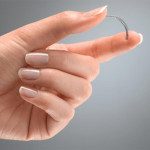Bayer (ETR:BAYN) can’t dodge a clutch of lawsuits filed by patients alleging their injuries were caused by its Essure female sterilization device, a California state judge ruled last week.
Three cases, covering claims from 14 women and 11 separate suits, were given the go-ahead to proceed by the Superior Court of California in Alameda County in rulings dated August 2. The cases argue that Bayer’s Essure caused a number of problems and injuries who have had the device implanted.
In 3 separate rulings, Judge Winifred Smith rejected multiple defenses raised by Bayer, including looking for federal preemption related to FDA approved labeling, jurisdiction on the cases location in California and arguing that claims were outside the statute of limitations, according to court documents.
Essure is a small metal coil that’s placed in the fallopian tubes via catheter. The FDA said last year that in the 13 years since Essure’s approval, it had received 5,093 complaints, including for pain or menstrual irregularities after using the device, and complaints of the device breaking. In addition to 5 fetal deaths, there were 4 reports of adult deaths for reasons such as infection and uterine perforation, the FDA said.
In March, 30 women filed suits against Bayer over injuries allegedly related to its Essure permanent birth control device, claiming the device led to severe health problems including abdominal cramping, migraines and abnormal menstrual bleeding, according to a law firm’s press release.
The lawsuit was filed March 17 in the Circuit Court of St. Louis, according to the law firms representing the women in the case, who claim they have suffered serious and permanent injuries as a result of using the Essure device.
The lawsuit contends that Bayer and Essure’s original developer, Conceptus, knew about the device’s risks and intentionally misreported and concealed facts and findings to keep the product on the market.
In February, the FDA said it would put a pair of measures in place for Essure, mandating a new clinical study and new guidance on using the device.
In a report issued before a September 2015 meeting of the FDA’s Obstetrics & Gynecology Devices advisory panel, the agency said it logged a nearly 1,400% spike in complaints filed over Essure in the last 3 years. During the hearing, Bayer’s director of global pharmacovigilance risk management, Dr. Andrea Machlitt, told the panel that the company received 17,000 adverse event reports, 15,000 from the U.S. The panel voted to recommend limited use of Essure until more is known about its safety.
In October 2015 a study found that women implanted with Essure were more than 10 times more likely to require post-procedure surgery than those who underwent laparoscopic sterilization. DiFlumeri said the study “has a number of limitations.”
“It is important to note that this study is based on a single database of 1 U.S. state and it is unclear if the data includes patients who underwent Essure in office settings. Further, the authors use the term ‘reoperation’ ambiguously, and acknowledge that unmeasured factors may have influenced the relationship between use of Essure and reoperation,” she wrote.
A bill sponsored last year by Rep. Mike Fitzpatrick (R-Pa.) would ban U.S. sales of Essure altogether.


